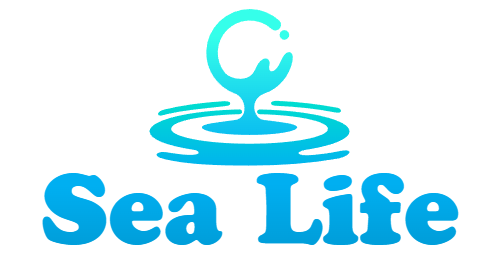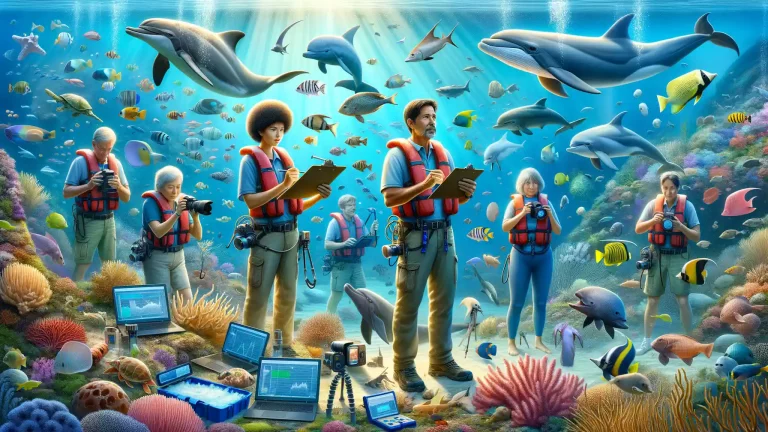Introduction to Citizen Science and Ocean Conservation
Imagine standing on a sunlit beach, watching waves crash at your feet. Now picture this: you’re not just a bystander but an active player in protecting those very waves—and everything they cradle within them. Enter the world of citizen science, where everyday people like you and me join forces with scientists to safeguard our oceans. It’s hands-on, rewarding, and vital.
What Is Citizen Science, and Why Does It Matter for Our Oceans?
At its core, citizen science is about turning curiosity into action. Think of it as a bridge between professional researchers and passionate volunteers. Whether you’re collecting water samples on your local shoreline or snapping photos of marine wildlife during a scuba dive, your contributions can directly influence conservation policies. The health of the ocean affects all of us—after all, it covers more than 70% of the planet and regulates our climate!
How Can You Make a Difference?
Diving into citizen science can be as simple as logging observations on an app or as adventurous as joining field expeditions. Here are a few ways you could lend a hand:
- Track marine life: Report sightings of whales, dolphins, or sea turtles to global databases.
- Monitor ocean conditions: Test water quality or measure plastic pollution along your local coastline.
- Rescue coral reefs: Help map damaged reefs or participate in restoration programs.
Every small effort adds up. Together, these data points unlock secrets of the deep—empowering us to protect it better.
Popular Citizen Science Projects Focused on Marine Environments
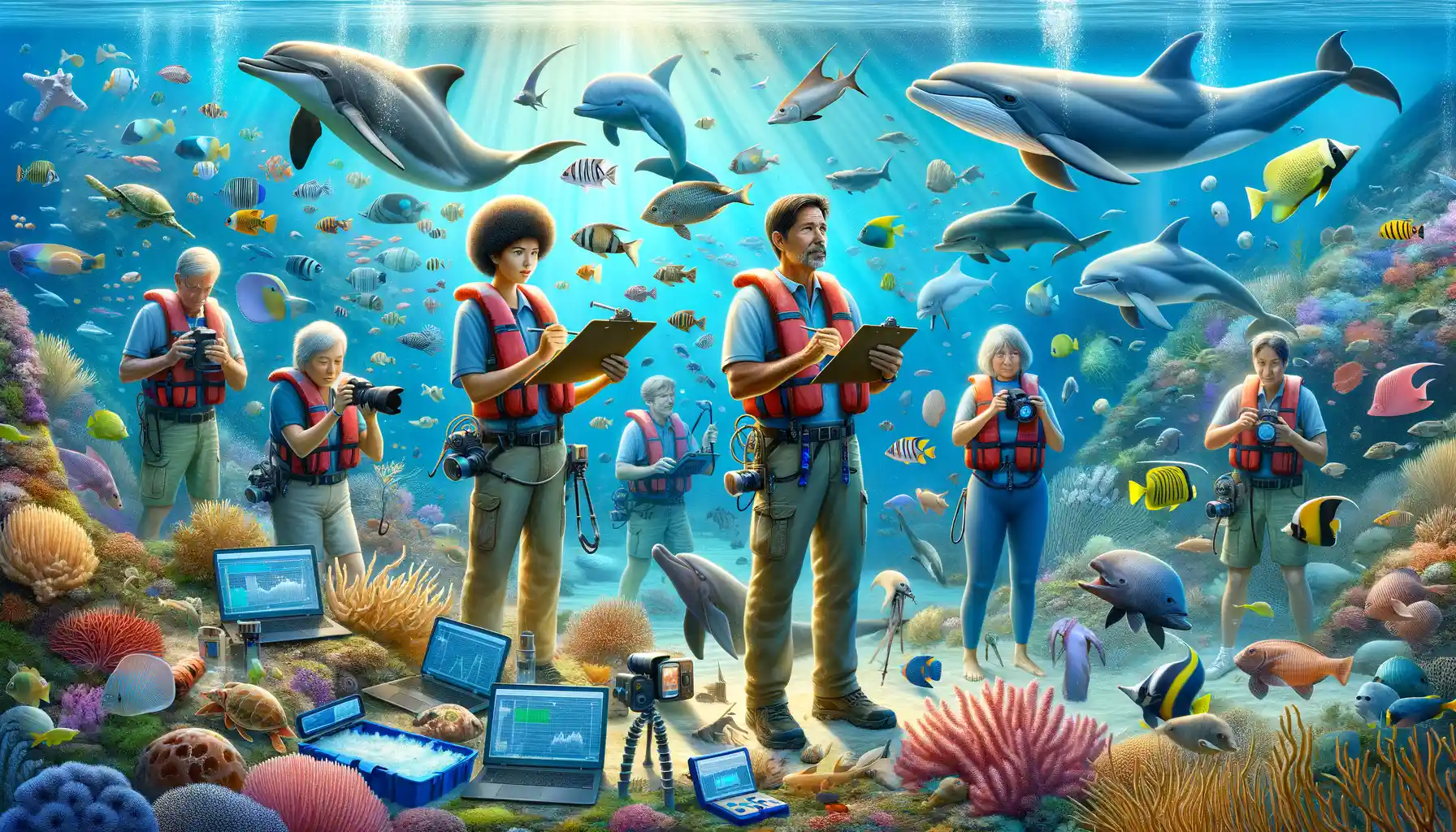
Making Waves with Marine Life Monitoring
Ever dreamed of becoming a marine biologist just for a day? Citizen science projects focused on marine environments are your free ticket to dive in—without getting wet! One shining star is the Sevengill Shark Tracking Project, where volunteers help photograph and track these mysterious predators. It’s like being a detective of the ocean, piecing together clues about their migration patterns and behavior.
Or imagine walking along the beach with a purpose. The Marine Debris Tracker app turns your stroll into a mission to fight ocean pollution. By recording trash you find, you’re feeding crucial data to scientists working toward cleaner shores. Every bottle cap logged is a step closer to understanding how waste flows through our waterways.
– Track rare species like whales or dolphins using citizen science platforms like Happywhale.
– Make waves in coral reef conservation by contributing photos to the CoralWatch Program.
The best part? These projects don’t ask for fancy degrees or endless hours. Just curiosity and a love for the deep blue sea. Now, the ocean’s story includes your fingerprints too.
How Citizen Science Supports Marine Conservation Efforts
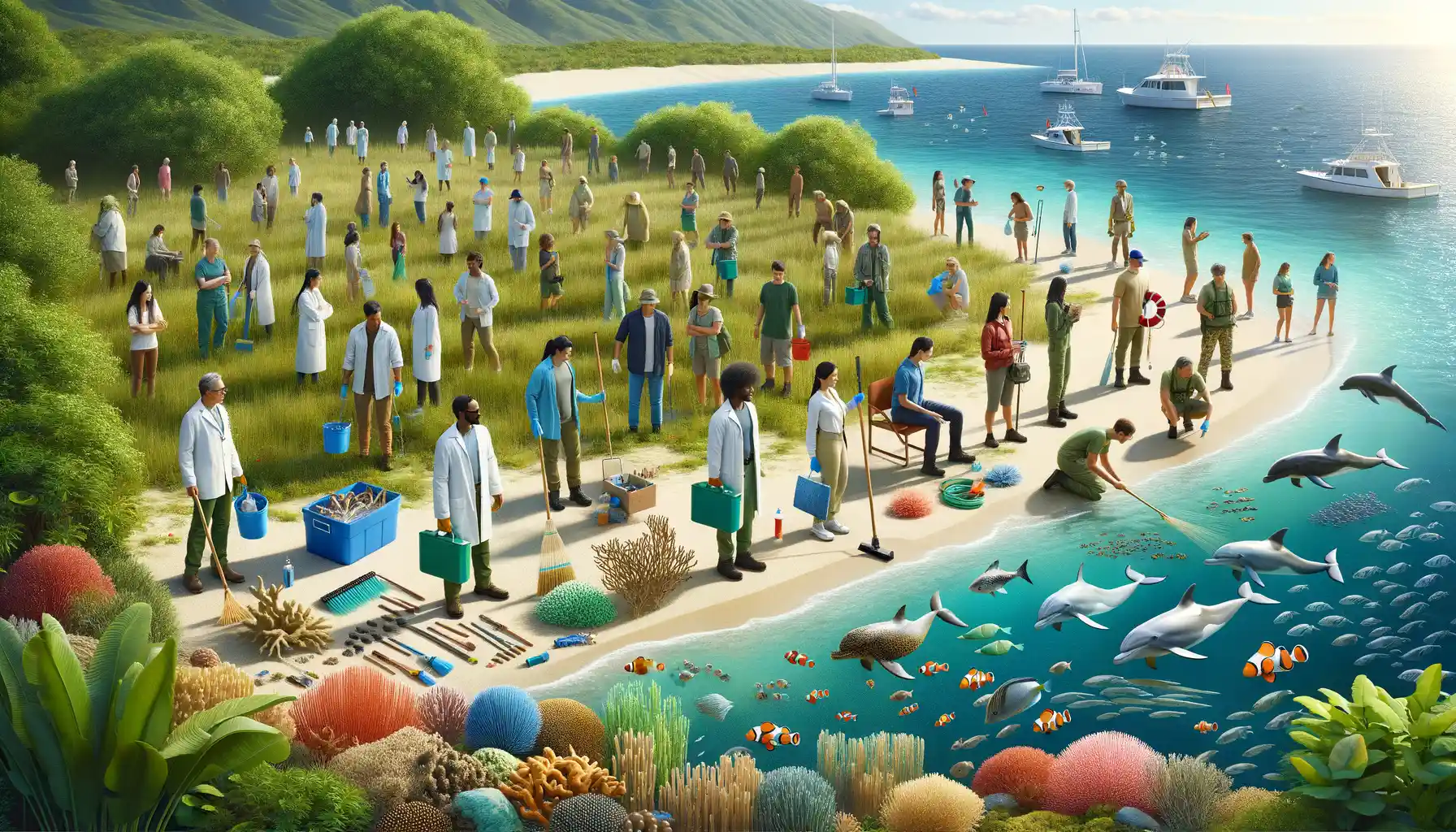
Turning Passion into Purpose: Citizen Scientists at Work
Imagine this: a passionate diver documenting coral health, a beachgoer collecting plastic pollution data, or a sailor tracking whale migrations. This isn’t just daydreaming by the ocean—it’s citizen science in action. These everyday heroes are bridging the gap between local observations and global marine conservation efforts.
By participating in projects that monitor biodiversity or track environmental changes, citizen scientists provide researchers with something they often struggle to gather on their own: an overwhelming wealth of data from across the world. For example, tracking changes in turtle nesting sites or recording jellyfish blooms helps scientists identify patterns critical to preserving marine life.
The magic? You don’t need a degree in marine biology; just curiosity and willingness.
- Real-world examples: Apps like iNaturalist let users log sightings of marine creatures, creating a treasure trove of data for researchers.
- Simple tools: With nothing more than a smartphone or notebook, participants can help assess water quality or track invasive species.
Citizen science doesn’t just support marine conservation—it empowers people to be part of the solution. It’s proof that small actions, multiplied globally, can spark monumental change.
From Data Points to Policy Decisions
Here’s where the real magic happens: once those observations—tide levels, seagrass health, marine debris counts—are gathered, they can fuel groundbreaking discoveries. Already, data contributed by citizen scientists has influenced policies protecting vulnerable species and created new marine protected areas.
Take the example of the Global Coral Bleaching Database. Citizen divers and snorkelers have amassed critical data that alerted governments to widespread coral bleaching events. And let’s not forget ocean-cleanup initiatives like the Marine Debris Tracker, which have inspired localized bans on harmful plastics.
In a world struggling with climate change, ocean acidification, and habitat destruction, the voices of citizen scientists echo louder than ever. Your observations today might shape marine ecosystems tomorrow.
Getting Involved in Ocean-Focused Citizen Science Activities
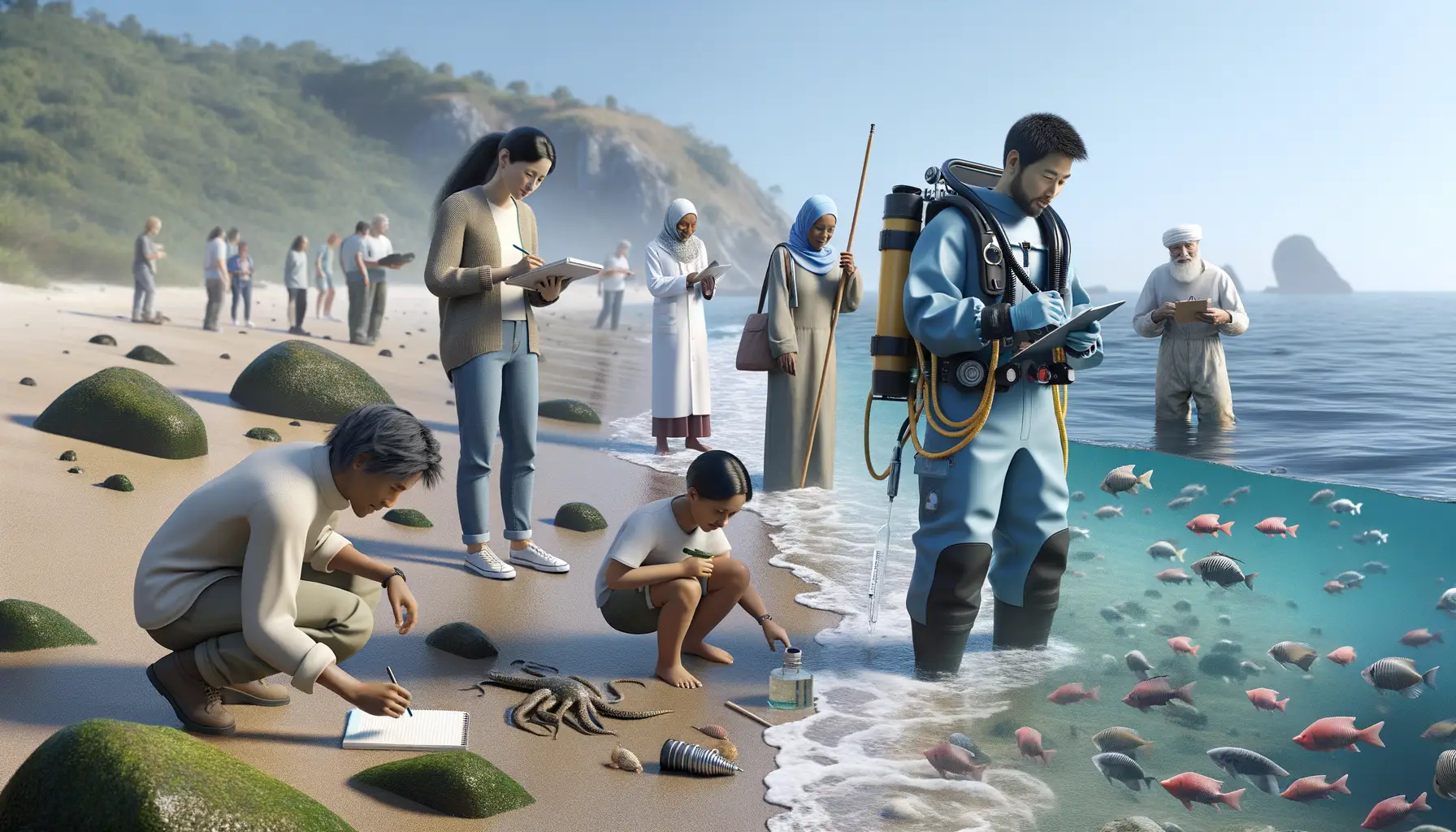
Discover Hands-On Ways to Make a Difference
Jumping into the world of ocean-focused citizen science is like diving into an underwater adventure. It’s not just about data collection—it’s about giving your time and curiosity to something bigger than yourself. Whether you’re walking along the beach, snorkeling in vibrant reefs, or even sitting at your computer, there’s an opportunity for everyone to contribute.
Imagine heading out on coastal walks where you don’t just enjoy the sound of crashing waves but also log sightings of starfish, turtles, or even debris as part of initiatives like Marine Debris Tracker. Or picture yourself using apps like iNaturalist, turning your smartphone into a tool for cataloging marine plants or animals! And yes, even landlocked ocean lovers can scan satellite imagery for signs of illegal fishing through projects like Global Fishing Watch.
- Join organized beach clean-ups and track plastic pollution data while you work.
- Contribute photos of coral bleaching events if you’re diving or snorkeling.
- Take water samples to support local research on ocean health.
Start Small, Make Big Waves
The best part? You don’t need to be a scientist or own fancy equipment to get started. Often, all that’s required is patience, a phone app, and a desire to protect the incredible life beneath the waves. For example, projects like Seafloor Explorer allow you to help classify images of the ocean floor right from your couch.
Want to get your family involved? Bring your kids to a local coast to search for stranded marine creatures or litter. Not only are you giving back to the environment, but you’re also creating lifelong memories and teaching the next generation to care deeply about our oceans. It’s grassroots efforts like these that ripple out into real change.
Future of Citizen Science in Ocean Conservation
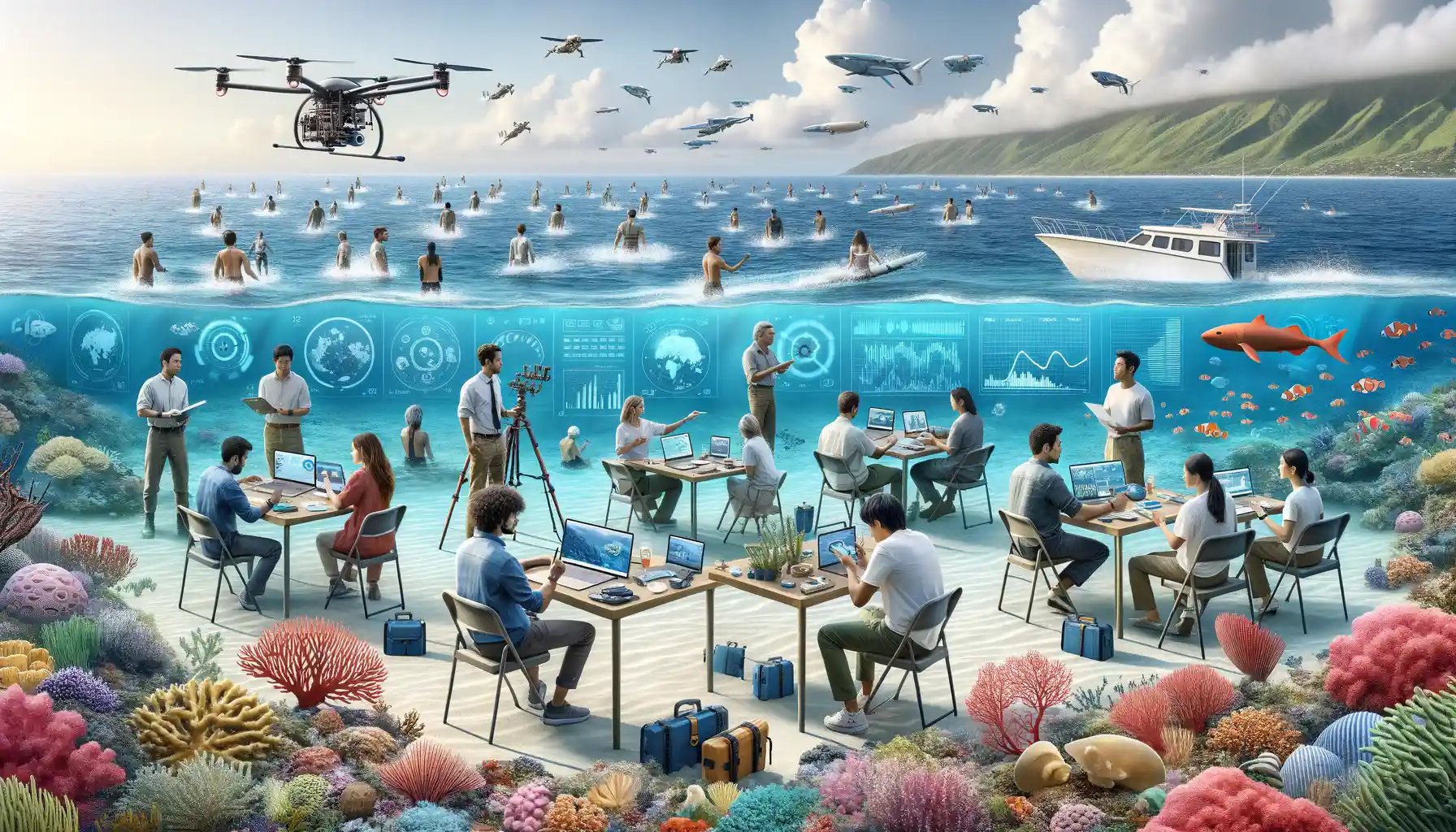
The Wave of Technology in Citizen Science
Picture this: a future where every beachgoer, diver, or curious child with a smartphone is a key player in saving our oceans. Thanks to advancements in technology, this isn’t just a hopeful dream—it’s the trajectory we’re heading toward in citizen science. Tools like AI-driven apps, underwater drones, and GPS-enabled devices already allow ordinary people to collect ocean data with remarkable precision. Imagine snorkeling over a coral reef while your phone identifies coral bleaching in real time or hiking along a coast and immediately reporting plastic pollution through an app.
Incredible platforms like these will not only make ocean conservation more accessible but also impossible to ignore. Soon, even those who’ve never seen the sea might contribute by analyzing satellite images online, identifying illegal fishing zones, or mapping marine wildlife sightings—all from their living room sofas.
Collaborative Communities for Ocean Action
The heart of this movement? People. As the world embraces citizen science, we’ll see vibrant networks grow. Picture this:
- Local fishermen sharing data on seasonal fish populations.
- Divers documenting the return of species once thought lost.
- Activists uniting global communities to lobby for marine protected areas.
The future of ocean conservation rests on these human connections, each thread weaving into a powerful net of change. Together, we’ll safeguard the wonders hidden beneath the waves.
